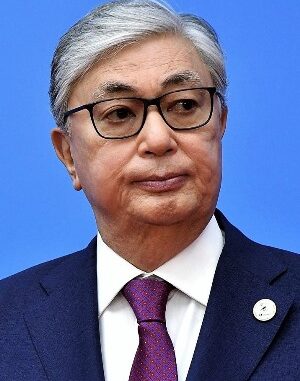
The recent death of 46 miners in the Kostenko mine is the largest loss of life in the history of Kazakhstan’s mining industry (for more background information: Forty six workers killed in explosion at Kostenko mine, Kazakhstan | (socialistworld.net). Tragically, this is one of many fatal accidents in recent years. Mining can be a dangerous job even when proper safety precautions are made. But according to workers in the now privatised mining rescue service, as many as 70% of the fatalities in the last few years could have been avoided if the rescue service had been properly resourced with the right equipment.
Before privatisation in 2015, the mining rescue service was part of the Emergency Ministry. It had a long history of expertise stretching back to the 1930s. It was privatised at a price of less than half its market value. Money that should have been spent on updating safety and rescue equipment has disappeared. This has meant that the rescuers now face additional problems; oxygen masks that have a use life of ten years before they perish are now out of date and unfit for use. Rest periods have been cut for rescuers. The number of rescuers has fallen dramatically in the last ten years. In the Kostenko mine, rescuers found that there were only two working fire extinguishers for the entire mine. These cuts in the rescue service take place at the same time as investment in the mines themselves has fallen, making the mines potentially much less safe.
Former presidential advisor, Ahmed Mestoyev, is the new owner, though he is not mentioned on the company website. The current arrangements require the privatised mining companies to buy in the safety and rescue service. But if the rescuers raise any concerns they are shut up by bosses for fear that they “irritate” the mine owners, who might then cancel the contract. The mine owners clearly do not want to spend their profits on safety measures to protect the mine workers.
Incredibly, the Kazakh government refuses to intervene to force proper health and safety standards in the mines, arguing that it does not “interfere “in private business. A recent government inspection of the rescue service found that it was “excellent”. Yet the workers question how can safety equipment which has not been replaced since the 1970s be “excellent”?
Workers in Kazakhstan are raising the demand for the renationalisation of the mines and the rescue service. Workers around the world will give their full support to such a campaign.
Special financial appeal to all readers of socialistworld.net |
Support building alternative socialist media Socialistworld.net provides a unique analysis and perspective of world events. Socialistworld.net also plays a crucial role in building the struggle for socialism across all continents. Capitalism has failed! Assist us to build the fight-back and prepare for the stormy period of class struggles ahead. Please make a donation to help us reach more readers and to widen our socialist campaigning work across the world. |
Donate via Paypal |
| M | T | W | T | F | S | S |
|---|---|---|---|---|---|---|
| 1 | 2 | 3 | ||||
| 4 | 5 | 6 | 7 | 8 | 9 | 10 |
| 11 | 12 | 13 | 14 | 15 | 16 | 17 |
| 18 | 19 | 20 | 21 | 22 | 23 | 24 |
| 25 | 26 | 27 | 28 | 29 | 30 | 31 |

